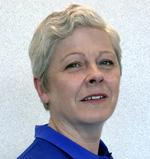The Scottish Government’s National Care Service (Scotland) Bill has been published and is now in its parliamentary stages toward becoming law. However, the scope of the Bill has seen the original proposals grow to now cover adult, child, justice, substance misuse and some mental health services and also proposes a system which would be accountable to Ministers. So what do you or your organisation need to understand about what was in the published Bill, the responses to it and its parliamentary progress? How is Scottish Government thinking on the Bill evolving during its parliamentary stages and to what extent is it responding to concerns?
This conference is timed to explain, examine and foster discussion on the planned Scottish National Care Service. It aims to help all those involved in the delivery of care in Scotland to understand what was in the Bill when published and how it may change as it moves through parliament. It is intended to explain the consequences of the Bill for current and future provision of care and services. Finally, it provides a space to support stakeholder input to deliberations on the Bill as Parliament considers, amends and passes it.
The First Minister described this initiative as ‘the most significant public service reform since the creation of the National Health Service’. The new service is intended to oversee the delivery of care, improvement of standards, support of unpaid carers and the training, pay and conditions of staff - but not to operate services.
However new legislation and a new government agency with wide ranging service responsibilities will have substantial implications for how services and structures are funded and led. So what is in the Bill? What does it mean for the future provision of care in Scotland? What are the consequences for existing providers and staff? How will all organisations in the care system and the supply chain that supports it be affected? Most importantly, how will this affect outcomes in care quality for those receiving and delivering care?
This conference examines the content of the Bill to establish the Scottish National Care Service and discusses how what is proposed will impact on the delivery of care. It will focus on three broad themes:
Benefits of attending
Who should attend
This conference is relevant for anyone involved in the planning, organisation or delivery of care services in Scotland. This includes policy makers, care providers, care staff, care giver and care receiver representative groups, regulators, those managing or working in the fields of adult, child, justice, substance misuse and mental health services and health, care and third sector bodies responsible for the provision or commissioning of care services.

Minister for Mental Wellbeing and Social Care
Scottish Government

CEO
Cyrenians

Chief Executive
Coalition of Care and Support Providers in Scotland (CCPS)

Chief Officer, Health and Social Care Team
COSLA

Chief Executive
Scottish Social Services Council

Deputy CEO
Scottish Care

Honorary Secretary
British Geriatrics Society

Partner and Co-head of Government and Business Team
Brodies LLP

Head of Leadership and Civic Participation
Inclusion Scotland
09:25 Chair's opening remarks
Professor Anne Hendry, Honorary Secretary, British Geriatrics Society
GeriSoc AnneIFICScot
Session 1: What’s in the Bill and how is it changing?
09:30 Keynote: Strategic aims of the Bill
Kevin Stewart MSP, Minister for Mental Wellbeing and Social Care, Scottish Government
scotgov ScotGovNCS scotgovhealth
09:45 Question and answer session
09:55 Assessing the Bill - is it evolving?
Karen Hedge, Deputy CEO, Scottish Care
ScottishCare hegeit
10:10 What the Bill means for the structure and quality of care delivery
Eddie Follan, Chief Officer, Health and Social Care Team, COSLA
COSLA
10:25 Question and answer session
10:40 Comfort break
Session 2: Services, service delivery and budgets - where is the Bill heading?
10:55 Where, when and how should change take place?
Rachel Cackett, Chief Executive, Coalition of Care and Support Providers in Scotland
ccpscotland r_cackett
11:10 Structural, legal and service consequences of the Bill
Jackie McGuire, Partner and co-head of Government and Business team, Brodies LLP
BrodiesLLP
11:25 Bill consequences for care providers and care workers
Lorraine Gray, Chief Executive, Scottish Social Services Council
SSSCnews LorraineSSSC
11:40 Question and answer session
11:55 Comfort break
Session 3: The Bill’s care outcomes - what are they now, what could they be?
12:10 Focusing the Bill on care outcomes
Dr Pauline Nolan, Head of Leadership and Civic Participation, Inclusion Scotland
InclusionScot
12:25 How the Bill started, what it means now and where it should go next
Ewan Aitken, CEO, Cyrenians
Cyrenians1968 EwanAitken
12:40 Question and answer session
12:50 Chair's closing remarks
Professor Anne Hendry, Honorary Secretary, British Geriatrics Society
GeriSoc AnneIFICScot

Kevin Stewart MSP
Minister for Mental Wellbeing and Social Care
Scottish Government
Before his election to the Scottish Parliament, he was previously the Depute Leader of Aberdeen City Council and served as a local councillor for more than eleven years. As a councillor, he chaired the Finance and Resources Committee and the North East of Scotland's Regional Transport Partnership, NESTRANS.
Kevin has served in the Scottish Parliament as the member for Aberdeen Central since 2011. He was the Convener of the Local Government and Regeneration Committee in the last Parliament and sat on the Welfare Reform and Justice Sub-Committee on Policing.
He was previously the Minister for Local Government, Housing and Planning.

Ewan Aitken
CEO
Cyrenians
Ewan is CEO of Cyrenians, a charity challenging the causes and consequences of homelessness.
A former Convener of Education and Leader of Edinburgh City Council, and CoSLA spokesperson on Education, Ewan has over 30 years’ experience in the public and third sectors. He founded the National Prison Visitor Centre Steering Group, the Ripple Project, and two credit unions. He is a council member of the Edinburgh Chamber of Commerce. Ewan is a Fellow of the Royal Society of the Arts, a member of the Ripple Project Board and the Promise Oversight Board, and a member of the Scottish Government's Rapid Rehousing Transition Plans Delivery Group and National Strategy for Economic Transition Delivery Board. He was a member of the CoSLA Commission on Strengthening Local Democracy and in 2018 he received the SCVO Charity Awards Leading Light Award.

Rachel Cackett
Chief Executive
Coalition of Care and Support Providers in Scotland (CCPS)
Rachel Cackett is the Chief Executive of CCPS. She joined CCPS from Samaritans where she had worked as Executive Director for Scotland since January 2020. At Samaritans she worked with volunteers, staff, partners and people with lived experience to build the charity’s Scottish presence, secure a new self-harm strategy, and shape recommendations for suicidal crisis support.
Prior to joining Samaritans, Rachel worked in the Scottish health and care sector for 20 years with campaign and policy roles at Shelter, RVS and the RCN, where she led the organisation’s work on integration, NHS finance and safe staffing legislation.

Eddie Follan
Chief Officer, Health and Social Care Team
COSLA
Eddie Follan is the Chief Officer in the Health and Social Care Team at COSLA. Eddie has a wide range of experience in the public and third sectors. At COSLA he was also the Chief Officer in the Children and Young People Team. He was previously Head of Policy at Children in Scotland and also co-ordinated the Scottish Living Wage Campaign with the Poverty Alliance. Eddie has a background in health having been a Charge Nurse in psychiatry at the Royal Edinburgh Hsopital.

Lorraine Gray
Chief Executive
Scottish Social Services Council
Lorraine Gray was appointed Chief Executive in August 2018.
Lorraine joined the SSSC in 2001 as the Communication Manager and has held a number of roles in policy, performance and communications, was most recently Director of Strategic Performance and Engagement.
Before joining the SSSC, Lorraine worked at Children 1st for six years as a policy officer and then communications manager.
Her background is in welfare rights, social change campaigns and

Karen Hedge
Deputy CEO
Scottish Care
Karen’s career in social care began as a paid carer and whilst hugely rewarding, she quickly became motivated by the pressures of the sector. A champion for participation and co-production, she believes in evidencing impact through outcomes for people.
Integration has been a theme of her career, having implemented the single shared assessment in an inner London Borough, and been one of the first people in the UK to have a joint funded NHS and Local Authority post, commissioning in Wiltshire. As Director of Finance, Governance and Compliance at the Prince of Wales Foundation in Washington DC, she held stewardship for a fundraising and grant-making non-profit, reporting directly to Clarence House.
As Deputy CEO of Scottish Care, she continues to shape the future of social care. Her portfolio includes reform, integration, commissioning and procurement and nursing in care. She particularly values the Scottish Care Awards where she learns of the successes of the sector and from those who effect change.
When she is not working, the ‘Ayrshire lass’ can be found on the beach with her family, letting the good sea breeze blow away the cobwebs. Her previous voluntary roles include Trustee for Milestones Trust, and Chair of the NCT Bath branch. She is currently on the committee of the Unfunded List, an international not-for-profit which supports unsuccessful fundraisers to meet their next bid, and is a Board member of Learning Network West, supporting social work education.

Anne Hendry (Professor)
Honorary Secretary
British Geriatrics Society
Anne chaired the organising committee for ICIC15 in Edinburgh and in 2016 took up a new role as IFICs Senior Associate in Scotland. In 2017 she established an International Centre for Integrated Care, hosted by the University of the West of Scotland, as the home of IFICs collaborating centre in Scotland. Anne chairs an enthusiastic Advisory Board that brings together partners from policy, academia, health, social care, Third sector and independent sectors to oversee four workstreams:
Leadership and Education – undergraduate; Masters and accreditable CPD
Knowledge Exchange and Translation – international webinars and special interest groups
Action Research and Evaluation – with a focus on frailty, dementia and personal outcomes
System Coaching – within and beyond Scotland
In her Senior Associate role, Anne supports a wide range of IFIC Academy activities, in particular strategic leadership, system coaching, and international knowledge exchange initiatives. These include support for IFIC summer school and conferences, and coordinating the Integrated Care Matters webinar series and special interest groups on Intermediate Care, Palliative Care, Polypharmacy, and Frailty. IFIC Scotland activities champion coproduction, empowerment and the use of lived experience and personal outcomes to transform the relational aspects of integrated care.
Anne is a geriatrician, stroke physician and clinical lead for Integrated Care with over 30 years’ experience of transforming health and social care in Scotland. She is a Fellow of the Royal College of Physicians (UK), honorary professor at the University of the West of Scotland and holds honorary appointments with the University of Glasgow and the University of Edinburgh’s Global Health Academy. As a graduate of the founding cohort of Delivering the Future, Scotland’s national strategic clinical leadership programme 2005- 2006, she has extensive experience coaching and mentoring leaders from all sectors.
Previous national clinical leadership roles span stroke, Long Term Conditions, Healthcare Quality, Joint Improvement Team, Reshaping Care for Older People, Active and Healthy Ageing, and Multimorbidity. Anne leads a Work Package in the European Joint Action on Frailty, participates in Advisory Boards for a number of European programmes, and provides technical advice for WHO initiatives on integrated care and transformation.

Jackie McGuire
Partner and Co-head of Government and Business Team
Brodies LLP
Jackie is Co-head of the Brodies Government and Business Team. She is a public law specialist with particular experience and expertise in the local government sector where she worked in-house for a substantial period of time. She regularly advises on the full breadth of local authority activity including social care, education, housing and roads as well as in relation to conduct and good governance. She also advises clients in relation to major infrastructure process working closely with colleagues in Real Estate and Planning in relation to compulsory purchase and statutory consents. Jackie’s client base includes a number of Scottish local authorities.
Jackie also acts on behalf of a number of registered social landlords as well as the Scottish Housing Regulator. Her regulatory practice also extends to advising and supporting care providers in connection with investigations and regulatory interventions in addition to advising clients in the independent schools sector in relation to regulation, standards and good governance.

Pauline Nolan (Dr)
Head of Leadership and Civic Participation
Inclusion Scotland
Dr Pauline Nolan joined the team at Inclusion Scotland in 2011 as Policy and engagement officer after completing a PhD from Edinburgh University on farm workers’ human rights in post-Apartheid South Africa, and then volunteering for Amnesty Scotland leading work on their Scottish Gypsy Traveller discrimination project.
What she does: Pauline is a member of Inclusion Scotland’s Senior Management Team and leads the work of the Leadership and Civic Participation department, which is made up of the People Led Policy (social care support) project; thir Civic Participation projects (Access to Elected Office, Politics and public life); and Inclusion Scotland’s communications, membership and engagement work.
What does she most enjoy about working at Inclusion Scotland? She most enjoys work engaging with disabled people through co-production and ensuring their equal access to decision making. She also love working with all her passionate colleagues, who each strive every day to deliver Inclusion Scotland’s mission – and they are lots of fun to work with too!
The conference takes place online.
How to book
You can book to attend, or order the video only, in 3 ways:
Conference fees
Payment
We do not currently accept payments online and will send you an invoice.
You have the option of paying by BACS or card.
BACS details will be included on the invoice.
If you wish to pay by card, please tick the appropriate box on the booking form and a member of our staff will contact you by telephone to take the payment. Alternatively you may call 0131 556 1500.
Book delegate places or purchase video recording.

